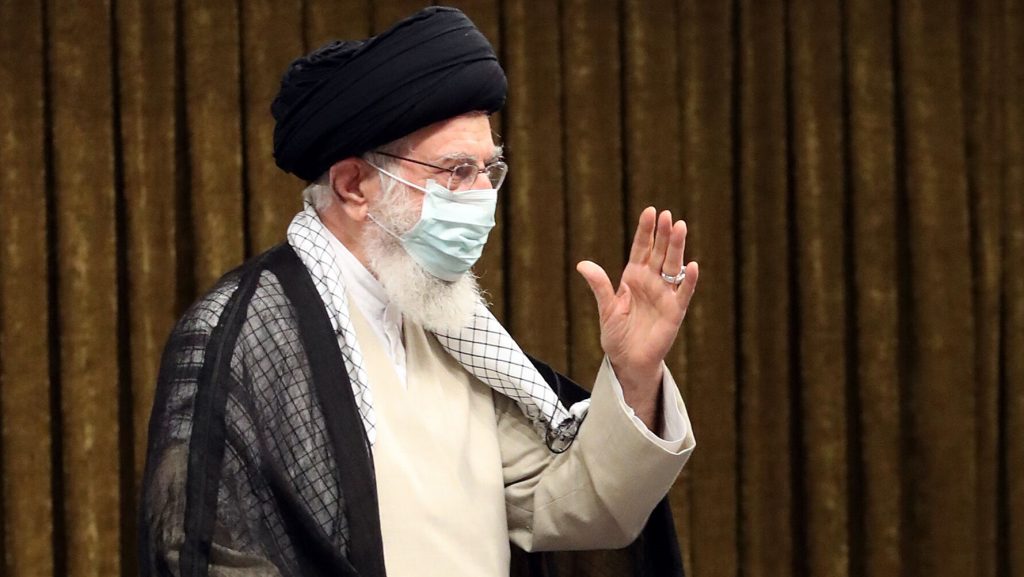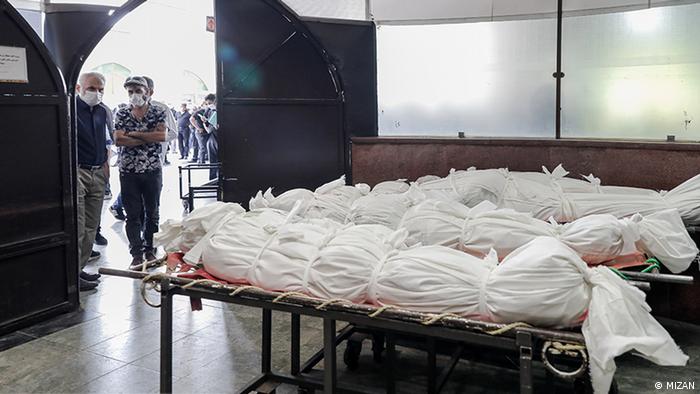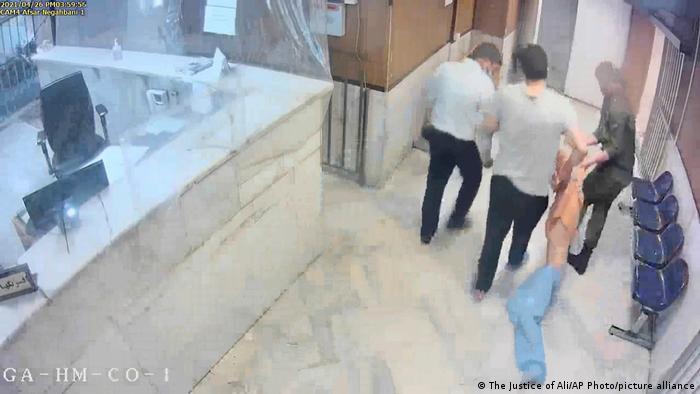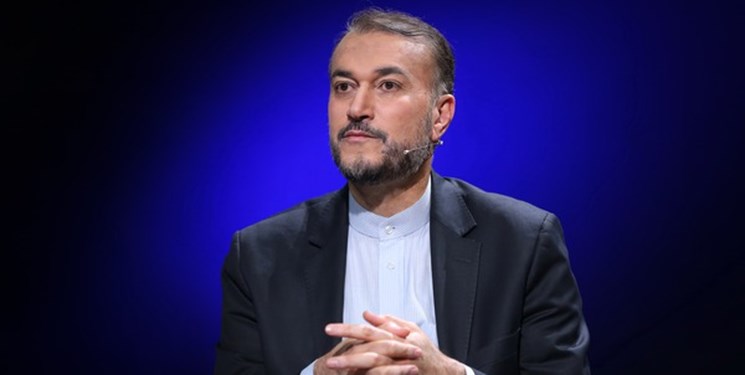
Solution for Exiting the Crisis of the JCPOA and Joining the FATF
The editorial of Setareh Sobh asserts that the only solution for improving people’s economic condition is through engaging with the world, lifting sanctions, and ratifying the FATF bills.
The forex price depends on supply and demand. When demand goes up and there is not enough supply, the forex price increases. In light of US sanctions, not ratifying the FATF bills, insufficient forex revenue, the demand for the dollar is more than the amount that is supplied, and as a result, the price of the dollar, as well as other goods, goes up.
Under these circumstances, one shouldn’t expect miracles to change the situation. As long as the issue of the nuclear deal and the FATF bills are not resolved and sanctions are not lifted, the price of the dollar keeps going up and impacts other goods.
Still, Ebrahim Raisi has not talked about his strategy regarding sanctions and ratifying the FATF bills. Meanwhile, it must be noted that not all decisions are made by the president, and it is up to the entire establishment to make the final decision.
The truth is that during the past decade, the number of essential goods in the Iranian consumer basket has declined. Due to the plummet in the national currency value, the increase in inflation and the decrease in incomes, people cannot purchase essential goods.
Undoubtedly, this is a threat against society’s health. Raisi’s slogan has been decreasing inflation, improving Iranians’ living standards, and bringing welfare to the Iranian people. Currently, the country’s economy is strained by sanctions, coronavirus, and the increasing forex price. If the government can take Iran back to the JCPOA and alleviate the sanctions, it can resolve a major part of the problems in the country’s economy.
The way to save Iran’s economy is through engaging with the East and the West. Ebrahim Raisi must create changes in Iranian international policies and improve Iran’s relations with foreign countries, particularly America. Only then one can hope for improvements in economic conditions and people’s lives.
Enough of Over-Generalizations!
The editorial of Aftab Yazd urges that the Iranian president and ministers must stop making general statements and must announce their verifiable, detailed plans for the future so that people can measure the level of their success.
No matter to what political faction Iranian officials belong, it must be admitted that they keep reiterating threadbare generalizations.
If we listen to the remarks made by the heads of government branches in Iran, we notice that they repeat the over-generalizations they had made in previous sessions and meetings. They keep restating a series of platitudes and obvious points, and it is not clear why these points must be raised in these sessions and how these points can help to alleviate people’s suffering.
This is true of the new government as well. The officials and managers who have just started working keep making general remarks. They keep saying this or that must be done, while they themselves are the ones who are in charge of doing these things.
None of the officials have said what is going to change in the first 100 days of the new government with regard to the economy and foreign policy. The economic minister, for example, has not stated what will happen with people’s incomes in the first month. Or the foreign minister has not said how much of Raisi’s promises about creating friendly relations with neighboring countries will be fulfilled in the next three months. Making just general points is not going to bring about any changes.
If the president and his ministers declare their short, medium and long-term plans, then the media can follow up on these plans, and society can clearly assess the outcomes of the new government.
Otherwise, it is just words, words, words.
Opportunities and Challenges Ahead of Raisi’s Government
The editorial of Ebtekar reviews the problems and opportunities ahead of the new Iranian President Ebrahim Raisi.
Last week, Ebrahim Raisi’s cabinet got a vote of confidence from the Iranian Parliament. All his proposed ministers, except for the minister of education, were approved by the Parliament and officially started their work.
Now that the 13th government has officially started its work with a high vote of confidence, we must see what challenges and opportunities are facing the government.
What advantages does this government have compared to its predecessors and what are the threats against it? If Raisi cannot take maximum advantage of the opportunities to resolve the country’s crises, it is not clear what will happen to the country.
The most important advantage of Ebrahim Raisi is that he is fully backed by the establishment. The entire establishment and its entities completely trust him. This means that in case his government fails, the competence of the entire establishment will be under question. On the other hand, Raisi, unlike previous heads of government, seeks cooperation with others.
Raisi’s second opportunity is his positive public perception, which can pave the way for implementing big decisions. His third opportunity is that the entire establishment – including its different branches – is led by ultra-conservatives called “principlists,” which means there will be no more conflict between these branches.
But Raisi’s government is facing big challenges. First and foremost, there is the problem of the budget deficit. In case no agreement is reached and there is no direct oil revenue, it is not clear how this deficit can be tackled. Raisi’s second challenge is the high number of coronavirus deaths and infections, as today coronavirus in Iran is one of the worst in the world. The third challenge is that people have become less tolerant. In the past decade, they have been under so much pressure that they cannot take it anymore. People have lost everything, and many Iranians have nothing else to lose.
This means there is no room for making a mistake, as any pressure might result in people losing control. The new government must face these serious challenges. It must take advantage of all its opportunities, as dealing with these challenges will not be easy at all.
Insecurity in Afghanistan
The editorial of Arman Melli analyzes the consequences of the US withdrawal from Afghanistan and what it might mean for the regional countries.
The recent explosion at Kabul Airport which resulted in the deaths of at least 170 people, including 14 Americans, showed that Afghanistan is going downhill. The hasty exit of American and NATO forces from Afghanistan, without the necessary coordination with the former Afghan government, demonstrated that under no circumstances does America pay attention to the security of countries in the region and has no strategies for preserving security in the occupied countries.
What happened over the past weeks is nothing but a global disaster due to the United States’ lack of policy in the region, as the 23-year presence of America in Afghanistan and its sudden withdrawal from this country have resulted in the gradual spread of insecurity from Afghanistan to other regional countries.
During the past 20 years and after 9/11, America has made two strategic mistakes and regional countries are still paying the price for America’s military and political blunders. Occupying Afghanistan and then Iraq were hasty moves based on rash and illogical decisions made by American statesmen – decisions that have been costly and with many casualties for Americans themselves as well. During this period, the United States has spent more than $800 billion in Iraq and Afghanistan, and more than 6,000 Americans have been killed there. Meanwhile, hundreds of thousands of people have been killed from these two nations as a result of the occupation of these two countries – Afghanistan and Iraq.
So, it can be predicted that in the future, Afghanistan will become a chaotic country like Somalia, and neighboring countries will have to pay the price for the chaos and insecurity there.
It is possible that ISIS and al-Qaeda will return to Afghanistan and divide the country into several smaller insecure, unstable countries, which means insecurity will spread across the entire region.
Naturally, the global community including NATO, the UN, and the EU which had been aligned with US policies will have to pay the price for the insecurity in Afghanistan. The UN and the EU have remained silent regarding the disaster in Afghanistan, which will encourage terrorist groups to go to this country to usurp power there.
Obviously, as Iran has a long border with Afghanistan, it cannot be indifferent towards the instability in that country. Changes and developments in Afghanistan will have a direct impact on Iran’s long-term security. This means Iran has the right to consult with neighboring countries regarding controlling the domestic situation in Afghanistan, given that America and the EU will not be involved in Afghanistan’s internal affairs.

Khamenei Calls Biden a “Ferocious Wolf;” Admits People No Longer Trust the Government

The Supreme Leader Ali Khamenei has once again lambasted the US government, saying that the Biden administration is no different from that of Donald Trump. He also acknowledged that people’s trust in the government has been “somewhat betrayed.”
In his first meeting with Ebrahim Raisi’s cabinet, Khamenei stated: “Behind the scenes of US foreign policy is a ferocious wolf who can turn into a cunning fox sometimes.” Accusing America of not fulfilling the terms of negotiations with Iran, he added that what the current US administration demands is the same as what Trump had demanded.
“In spite of the fact that they exited the JCPOA in front of everyone, they talk as if it is the Islamic Republic that has left the JCPOA along with its commitments and owes them,” pointed out Khamenei, “while Iran took no measures even a long time after America’s exit [from the nuclear deal].”
On a different note, Ali Khamenei advised Ebrahim Raisi’s cabinet saying people’s trust is the government’s greatest asset but unfortunately it has been betrayed and the only way to restore it is that the authorities’ words and actions should match.
This is the first time that Khamenei has admitted that people have lost trust in the political establishment. Iran has been recurrently witnessing nationwide protests over the past years, triggered by high prices or other livelihood issues, but soon change gear towards targeting the entire establishment with the supreme leader himself at its top.
Moreover, the government’s mishandling of the coronavirus pandemic – which has been intensified by Khamenei’s ban on American and British vaccines – has led to the significant death toll in the country. However, it is not yet clear when or how the political establishment is going to manage it.
Those Dead From Coronavirus Are “Victims of Despotism and Officials’ Negligence”

The Coordinating Council of Teachers Syndicates, as well as more than 500 civil and union activists, in two separate statements, called for prosecuting those responsible for the deaths due to coronavirus, while urging the immediate import of COVID-19 vaccines.
The Coordinating Council of Teachers Syndicates in its statement called for the immediate punishment of those responsible for coronavirus deaths, while underlining the necessity for the immediate and nationwide administration of vaccines.
The statement also points to Ali Khamenei’s speech in January 2021 when he banned the import of American and British vaccines, and the former Health Minister Saeed Namaki followed Khamenei’s order and barred the import of these vaccines.
The writers of the statement assert that the official number of deaths is 106,482 so far, adding that according to officials, this number could be up to three times more.
It is then stated that this “horrifying number of deaths” could have been prevented if authorized vaccines were imported, which means that those who died due to coronavirus were victims of despotism, negligence and the self-interests of those who have pocketed huge sums from manufacturing failed domestic vaccines and importing expensive COVID-19 drugs.
575 union, teacher, student, civil and political activists also issued a statement in which they point to the high number of deaths due to coronavirus in recent months caused by misplaced emphasis on manufacturing domestic vaccines as well as banning the import of American and British vaccines by the supreme leader.
Furthermore, in a letter to UN High Commissioner for Human Rights Michelle Bachelet, social and union activists as well as artists called for taking measures to contain coronavirus in Iran, or else “we will see horrific massive deaths in Iran.”
They too held Iranian Supreme Leader Ali Khamenei responsible for the high number of deaths by banning the import of American and British vaccines. Following Khamenei’s order, the letter says global policies for containing coronavirus were not followed, which resulted in the rapid spread of COVID-19 and the increase in deaths in the country.
The letter also points to the holding of religious ceremonies without observing health protocols, predicting a surge in the number of deaths and infections in coming weeks.
Evin Prison Scandal Continues; Images of Brutal Persecution of Prisoners Cannot Be Denied

In reaction to the recent release of hacked images from Evin prison’s CCTV, hundreds of political and civil activists have asked Iranian Supreme Leader Ali Khamenei to form an independent committee to investigate the legal violations committed in Iranian prisons. Meanwhile, the Parliament’s Article 90 Commission stated that the violations in Evin prison, as seen in the hacked footage, are irrefutable.
Recently, a hacking group called “Ali’s Justice,” released hacked video footage from Evin prison’s CCTV. In a 90-second video footage, Evin’s officials were recorded while treating prisoners brutally.
The Article 90 Commission’s spokesperson said that along with other MPs, experts from the judicial branch and the attorney general, they have watched the footage from Evin prison, and the violations are irrefutable. Ali Khezrian underscored the legal consequences for those responsible for committing these violations.
Earlier, Iranian officials had tried to question the validity of the footage, claiming that they have been doctored by “Zionists.”
First Deputy Chief Justice Mohammad Mosadeqh had said earlier that many images of torturing, mistreating, and beating prisoners in Evin prison “are doctored and have nothing to do with this prison.”
Moreover, a number of political prisoners in Greater Tehran prison issued a statement calling for human rights organizations to seriously investigate prisoner conditions in Iran. The prisoners stated: releasing footage of inhumane treatment of prisoners by torturing and humiliating them in Evin prison once again showed that the way Iranian prisoners are treated is far from human rights standards and how prisoners’ rights are denied.
These political prisoners have urged in their statement that what is seen in this footage is just a glimpse into how prisoners and their families are tortured in Iran, adding that there are other forms of torture that are not documented by any camera.
Iran Will Not Accept Killing Time in Vienna Talks, Says Amir-Abdollahian

New Iranian Foreign Minister Hossein Amir-Abdollahian in a television interview explained the policies of the new government regarding the nuclear talks in Vienna, urging that Tehran will not accept any approach that is based on killing time.
The Iranian foreign minister asserted that the Vienna talks must have “palpable outcomes” for Iran and the Iranian Parliament and government are “after gaining maximum rights for the Iranian people” in these talks, adding that “we don’t expect the other side to waste time, as it is not acceptable to anyone.”
While the Iranian foreign minister has made these remarks, the United States and the European countries have accused Iran of killing time in the nuclear talks.
EU High Representative for Foreign Affairs and Security Policy Josep Borrell recently spoke over the phone with Amir-Abdollahian, underscoring that Iran should resume nuclear talks with global powers. In reply, Amir-Abdollahian emphasized Tehran’s commitment to constructive talks within a “balanced diplomacy,” adding that Iran will agree to negotiations with practical and palpable outcomes.
America had earlier expressed concerns that the new Iranian government, headed by Ebrahim Raisi, would return to the Vienna talks with a more radical stance, which would make it more difficult to reach an agreement.
Meanwhile, the Iranian Foreign Ministry spokesperson accused the American administration of doubling down on the “failed policies” of Trump’s administration, insisting that the Vienna talks depend on America changing its behavior.
Saeed Khatibzadeh described the US sanctions as “maximum pressure against the Iranian nation” and “economic terrorism,” asserting that “what has remained [unresolved] in the Vienna talks is due to stubbornness and the unreasonable behavior of America and the Western side, and if there is change in their behavior, the JCPOA can be revived.”
